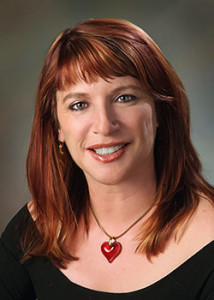Functional Medicine
Anti-Aging Medicine
Do you remember a time in your life when you had more energy, slept better, had an overall better attitude, were less depressed and anxious, had better, longer, and more satisfying sex, better recall, more physical stamina, didn’t have your same old familiar chronic cough (this is just an example of whatever condition may plague you personally), a time when you weren’t afraid that the best part of life has passed you by? These are the issues addressed by Anti-Aging medicine.
The term ‘ANTI-AGING’ is used to refer to any of the following:
-
- A number of products, including diets, drugs and supplements, touted to have anti–aging properties, intended to get you looking and feeling younger and better.
- Advancements with application to medicine intended for the extension of the length and quality of life, a subset of which is related to the cosmetic improvement and enhancement of the visible signs of aging;
- A branch of medicine which aims to reduce the chance of developing aging-related diseases by intervening in the biological process of aging, and thereby contributing to the extension of a healthy life span. Even if an age-related pathological condition develops, the key is the maintenance of holistic health – a sense of comfort, both physically and mentally – and well-balanced state.
Especially with respect to the large number of aging ‘Baby Boomers’, Anti-Aging medicine has come to play an increasingly important role not only from the viewpoint of individual happiness, but also with regard to the economic efficiency of society.
Health policy and conventional medical treatment has traditionally focused on the treatment of disease after its onset. However with the ascendance of Anti-Aging health care, the tide is set to change, with greater importance attached to preventive medicine. With its focus on aging, anti-aging medicine plays a central role in preventive medicine, potentially the ultimate role.
In addition to the traditional comprehensive medical checkup, age-related physical changes as well as signs and symptoms of aging can be identified by examining blood vessels, hormone levels, functions of sensory organs, balance between active oxygen and antioxidant potential, and others. Examinations may include conventional lab testing, so-called Anti-Aging or Functional Medicine lab testing, physical exam, gathering comprehensive medical histories, comprehensive urinalysis, saliva testing, blood spot testing, and more. These examinations enable early detection and treatment as well as the formulation of targeted lifestyle guidance to prevent age-related diseases. It is crucial to identify the signs of aging and take appropriate measures as early as possible.
The basic treatment elements of clinical anti-aging medicine consist of measures to improve the lifestyle of patients, such as:
- Lifestyle advice, including guidance on the use of nutritional supplements, exercise programs, nutritional guidance, and stress control;
- Hormone replacement therapy;
- Chelation therapy;
- Diabetes prevention;
- Weight loss programs;
- Detoxification protocols;
- Supplement therapy for hormone replacement, immune enhancement, antioxidant status improvement, improved nutrition, bone health, and neurological, muscular, and vascular health.
Lab Tests Looking at Blood, Urine, and Saliva
In addition to the usual tests performed by most doctors such as the CMP (Comprehensive Metabolic Profile) and CBC (Complete Blood Count), others may be ordered to investigate such things as allergies, heavy metal toxicity, vitamin and mineral deficiencies, gut health, and hormone imbalances. This type of enquiry is called Functional Medicine.


